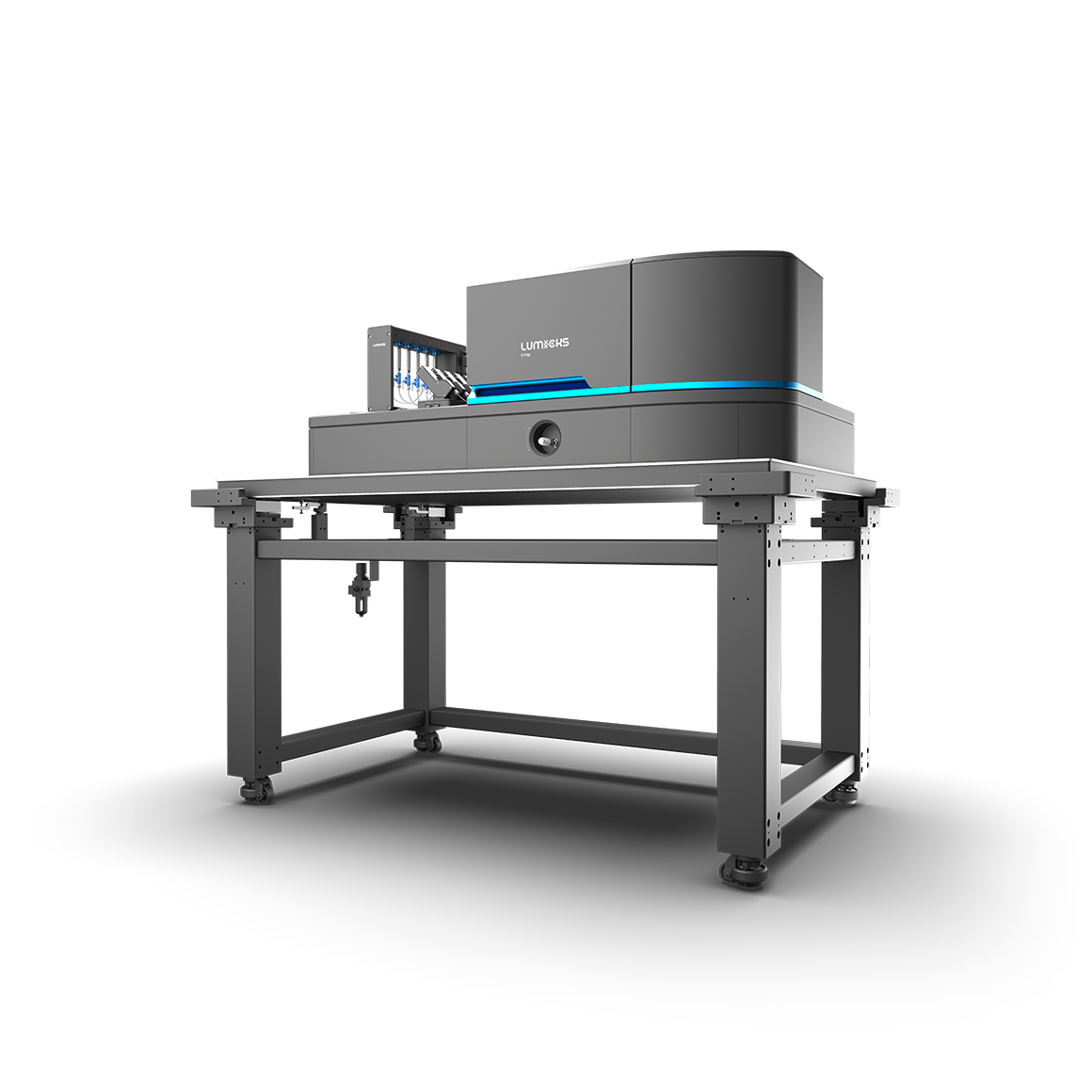Confocal microscopy
What is confocal microscopy?
Confocal microscopy offers an improved resolution and signal-to-noise ratio over widefield. The ability to vary the height of the focal plane simultaneously while experimenting is also remarkably useful for 3D reconstruction of larger specimens. This method is more time-consuming than widefield in acquisition and image production and generally higher maintenance, in some cases there is also a tradeoff where some resolution is sacrificed to distinguish different structures in a given sample. Confocal Microscopy is an excellent method of optical imaging often preferred by researchers for applications involving visualization of genetic material or structural components of cells. It enables the assessment of the colocalization of structures and has had large ramifications in studies of the viability of cells.

C-Trap
Molecular biology as never seen before
The C-Trap® provides the world’s first dynamic single-molecule microscope to allow simultaneous manipulation and visualization of single-molecule interactions in real time.

Filter CA and show 4 Latest
This shows the most recent card of each resource type filtered on Business Unit CA.
Webinar, Scientific update, Whitepaper, Application note, Brochure.
We only show 4 and we have 6 types so the 2 older ones are hidden.
In design only 1 is shown, but the rest will be loaded when published.
Improving the anti-tumor efficacy of CAR-T through biomolecular condensation
Chimeric antigen receptor (CAR)-T cell therapies showed remarkable efficacies in treating otherwise intractable cancers. However, current clinically approved CAR-T therapies are limited by low antigen sensitivity, impeding their efficacy against cancers with low antigen expression. Here, to address this issue, we engineered CARs targeting CD19, CD22 and HER2 by including intrinsically disordered regions (IDRs) that promote signaling condensation. We discovered that the CAR fused with an IDR from FUS, EWS or TAF15 promoted the formation of CAR-T conjugation with cancer targets, the mechanical strength of CAR-T synapses and membrane-proximal signaling, which led to an increased release of cytotoxic factors and a higher killing activity toward low-antigen-expressing cancer cells in vitro. Moreover, the IDR CAR-T displayed improved antitumor effects in both blood cancer and solid tumor models. No elevated tonic signaling was observed. Together, our work demonstrates IDRs as a new toolset for improving CAR-T function through inducing biomolecular condensation.
This webinar is in Chinese. 此次线上研讨会为中文讲座
Enhancing efficacy against clear cell renal cell carcinoma through format-tuning of bispecific T cell engagers
Cell Avidity: a key to accelerate IND filing in cell therapy drug development
Accelerate your cell engager discovery with high throughput measurements of Cell Avidity
T cells play a pivotal role in tumor immunosurveillance. Multispecific cell engagers (CEs) have been adopted in the field of immuno-oncology to redirect T cells toward cancer cells, thereby unleashing the anti-tumor potential of the patient’s immune system. CE-mediated cell binding induces T cell activation and the formation of an immunological synapse, which is a prerequisite for effective tumor cell lysis.
The strength of the initial binding events between a T cell and a tumor cell dictates the efficiency of the anti-tumor response. Assessing cell avidity, i.e. the total intercellular interaction strength between two cells, gives crucial insights into the efficacy of CEs as anti-tumor therapeutic agents.
Here, we deploy LUMICKS’ high throughput avidity measurement (HTAM) technology to measure CE-induced cell avidity in a high throughput manner. We demonstrate the assay performance characteristics, i.e. specificity, precision, and range, via CE titration experiments in the context of a Jurkat T cell model system. We find that the HTAM CA assay is suitable for candidate screening in high throughput, with high sensitivity and precision.
Cell Therapy Case Study Collection









